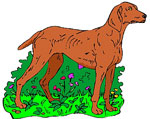


Socialisation is one of the most important things you can do for your puppy. It’s all about letting them meet people and other animals, and letting them experience lots of everyday sights and sounds, especially in their first few weeks of life.
As dogs get older their nutritional needs change. They need a more digestible food lower in calories. You will need to watch your dog’s weight carefully to prevent middle age spread! Older dogs, like us humans, can suffer from joint stiffness and can be prone to arthritis. As well as containing less calories and being made with easily digestible fish for its protein source our Senior/Light food contains the supplements Glucosamine, Chondroiton and MSM to reduce joint wear, fight arthritis and elevate joint pain and stiffness.
Socialisation has a big influence on the behaviour and temperament of your puppy that will affect their behaviour for the rest of their life. A well socialised puppy is more likely to grow up to be a friendly and outgoing dog. If socialisation isn’t done properly they’re more likely to be anxious and fearful as adults. Anxiety and fear are unpleasant feelings that reduce a dog’s quality of life. In addition, anxiety and fear cause problem behaviour, including aggression, so a lack of socialisation results in dogs being given to rehoming centres or even being put to sleep. Tragically, this happens to thousands of dogs every year.
Puppies need to be socialised when they are young because of the way a puppy’s brain develops. Between the age of 3 and 8 weeks, a puppy wants to explore and investigate everything that’s new. But after about 8 weeks, the brain changes and instead of wanting to investigate new things your puppy is more likely to be nervous of them and back away. Exposure to a range of people and animals and different places and experiences is therefore crucial before 8 weeks of age.
The earlier you start socialisation, the better. In fact, socialisation really starts at the place where your puppy was born so you should get a puppy from a place where it has been amongst normal everyday sights and sounds, like the vacuum cleaner, TV, hi-fi and washing machine. After 8 weeks socialisation is still important and the brain is still developing. At this age puppies will be naturally wary of new people and situations so the way in which you handle their encounters is very important to make sure they stay relaxed and unafraid.
This is an important point. Puppies normally go to their new home at 8 weeks of age (and should be with their mother until this time), and at this age you should take your puppy to your vet to find out when they can be vaccinated. Some will have already had one vaccination (arranged by the breeder) and will be due for a second. Others will need their first vaccination, and then will be due a second one a couple of weeks later (depending on your vet’s advice). It’s important because socialisation involves meeting other animals, but your puppy needs to be protected from diseases first.
When you’re at the vet’s, ask about puppy socialisation groups (sometimes called “puppy parties”) which lots of vet practices run to let puppies learn to socialise with other puppies. You should also ask for advice about socialising your puppy with dogs that are known to you and that are themselves fully vaccinated.
Let your puppy gradually meet and experience different things, but before you start, remember these golden rules: The experiences must be good ones! If your puppy seems anxious or afraid when they’re doing or seeing something new, calmly end what they’re doing. Don’t try to comfort or reassure your puppy as this will make them think that there was something to be scared about. Just be positive and upbeat and do something different.
This is very important because otherwise your puppy can develop fears and phobias. Build up new experiences gradually; for example, go to a local row of shops before a shopping precinct; a quiet road before a busy road etc. When your puppy is calm and relaxed, give them occasional praise and healthy treats so that they enjoy the experience.
Don’t introduce too many new experiences in one day. Three a day is a sensible number, remembering to repeat them as often as possible once your puppy is happy with them. Supervise play with other dogs carefully. Don’t let the play get too boisterous.